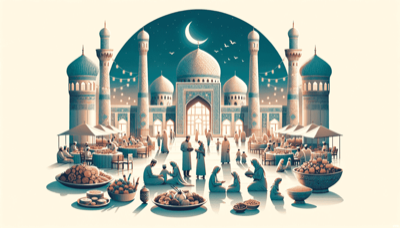We're here to help you keep count of the days to or since a date. Just click the button below and enter your chosen date to get started. Also choose the suggested days or search for a special day above #countingthedays

Eid al-Adha, known as Kurban Hayit in Uzbekistan, is one of the two major Islamic holidays celebrated by Muslims worldwide. It honors the willingness of Ibrahim (Abraham) to sacrifice his son as an act of obedience to God's command. However, before he could carry out the sacrifice, God provided a ram to sacrifice instead. The festival falls on the 10th day of Dhu al-Hijjah, the last month of the Islamic lunar calendar.
In Uzbekistan, a predominantly Muslim country, Eid al-Adha is an official public holiday and is observed with great reverence and enthusiasm. The traditions include:
Prayers: The day starts with special prayers at mosques or open-air prayer grounds. People dress in their finest clothes for the occasion.
Sacrifice: Following prayers, those who can afford it perform Qurbani (sacrificial slaughter of sheep, goats, cows or camels). This act symbolizes Ibrahim's sacrifice and is a key component of the celebration.
Charity: A significant portion of the meat from the sacrificed animal is distributed among relatives, neighbors, and especially to those in need. This practice reinforces social ties and ensures that no impoverished person is left without support during this time.
Feasting: Families gather for festive meals that feature dishes made from the sacrificial meat.
Visits: It is customary for people to visit friends and family members, pay respects to elders, and exchange gifts.
On Eid al-Adha in Uzbekistan:
The celebration continues for several days, allowing ample time for these acts of worship, charity, socializing, and feasting.